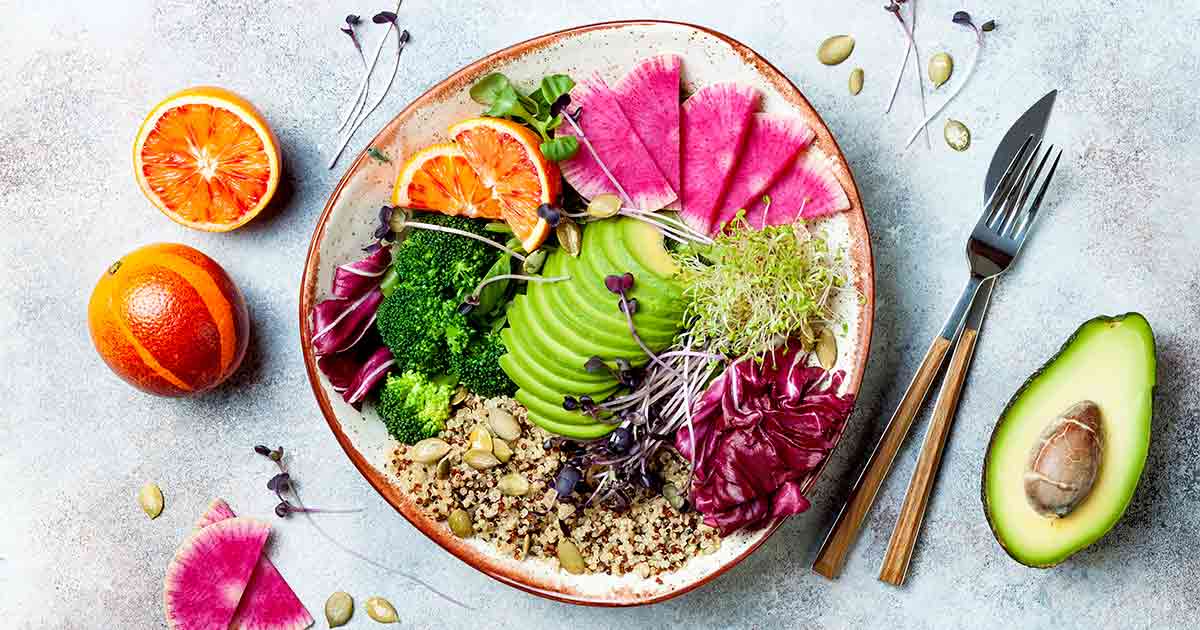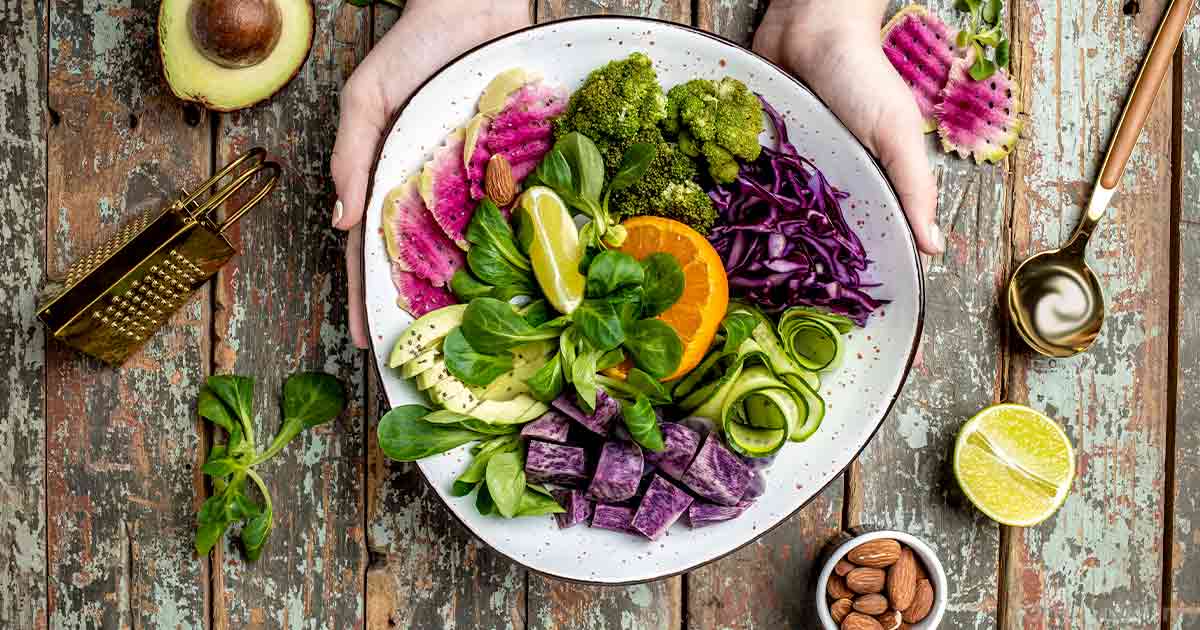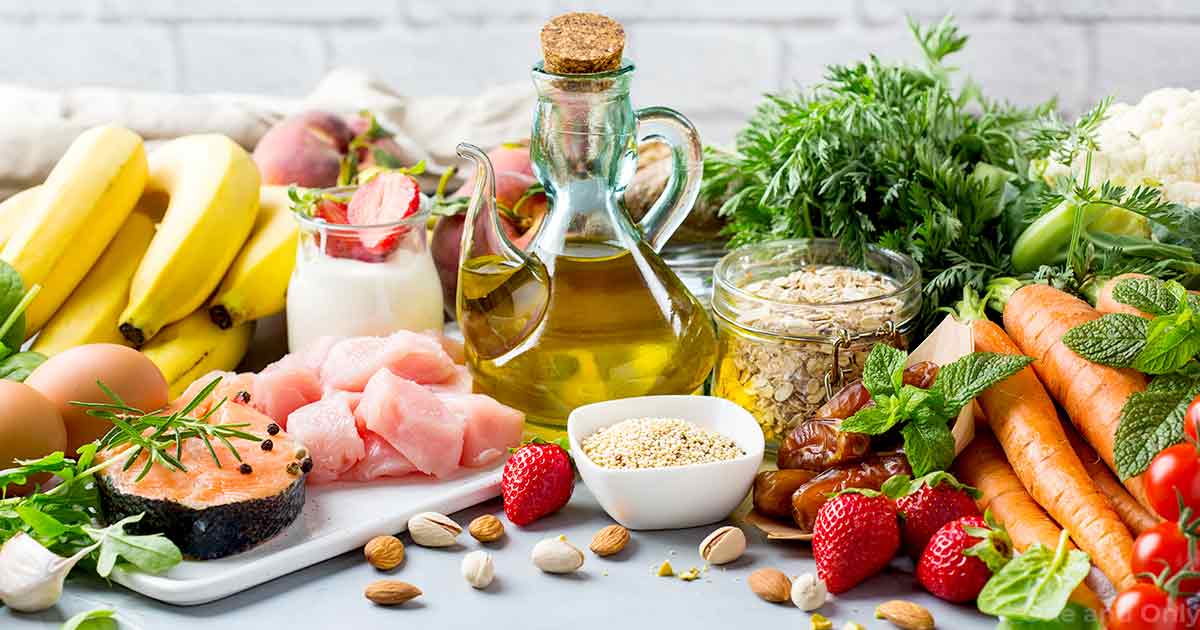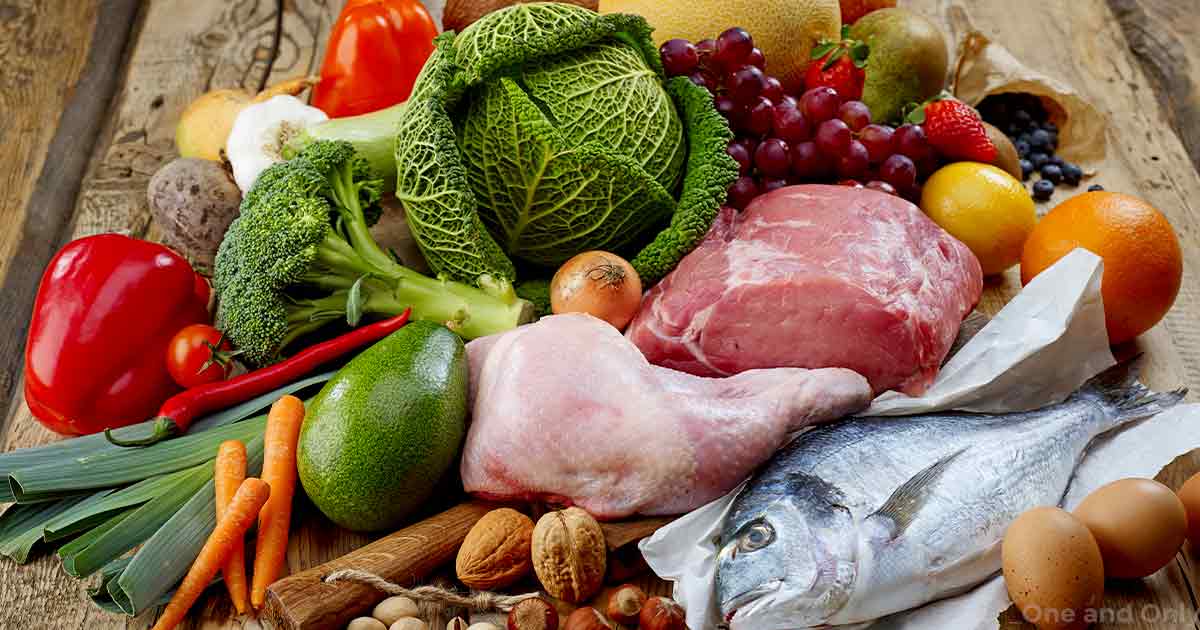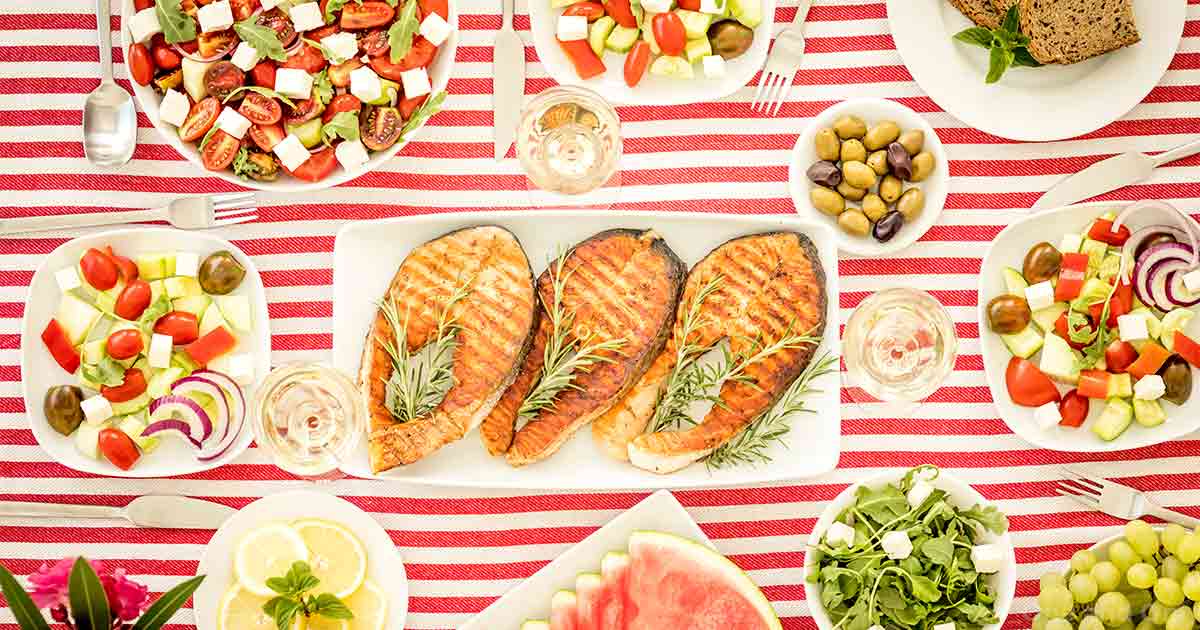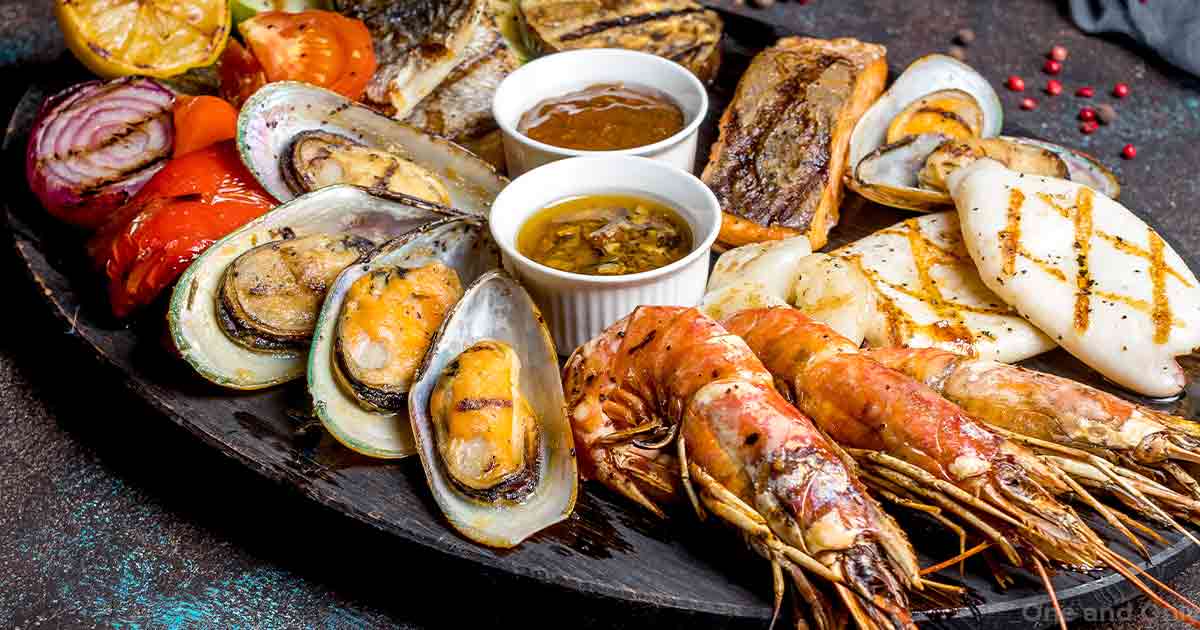Veganism is a type of vegetarian diet defined as a way of living that excludes all forms of animal cruelty and exploitation. People who follow the diet are known as Vegan. A vegan diet is full of plant-based foods that include plenty of vegetables, beans, edible nuts, mushrooms, fruits, and seeds. Eating this type of food will provide a wide range of essential vitamins, minerals, protein, and healthful fats (1). It eliminates all animal products, including eggs, meat, and dairy (2). Some of them also avoid eating honey. However, people who choose to live a vegan lifestyle may also avoid animal-based soaps, clothes, makeup, personal care items, and other products. People decide to follow this diet for various reasons like environmental, ethical, or health. But they also should take care to get some essential nutrients, including iron, calcium, protein, vitamin D, and vitamin B12 (3).
Key Nutrients to Consider
A vegan diet eliminates some source of nutrients from the diet, so we must plan our meals carefully to avoid nutritional deficiencies (4). It is healthy overall, but avoiding animal protein can cause a shortage of a few vital nutrients, such as vitamin B12, calcium, omega-3 fatty acids, zinc, iron, vitamin D, and iodine.
-
Vitamin B12 – It is found mainly in animal products such as fish, meat, eggs, poultry, and dairy foods, which helps transform food into energy in our bodies and assist in brain function. However, B12 deficiency can cause anemia, heart problem, and potentially irreversible neurological damage. Plant milk, nutritional yeast, yeast spreads, fortified cereals are a good source of vitamin B12.
-
Iron – Foods comprise iron in two forms: haem iron and non-haem iron. Animal foods contain haem iron, which can be absorbed better (5). Iron is essential for blood health, heart health, wound healing, cognitive development, supporting the immune system, and thyroid metabolism. It is important for red blood cell production that carries oxygen throughout the body. Vegan foods such as beans, lentils, spinach, soy nuts, tofu, fortified whole grains contain only non-haem iron, which is less easily absorbed by the body.
-
Calcium – It is crucial for teeth and bone health. Calcium strengthens your bones and teeth, which also helps maintain the functioning of nerves and muscle tissue. Tofu, broccoli, kale, almonds, soy milk, and fortified orange juice are excellent calcium sources.
-
Iodine – It is vital for thyroid function. Seaweeds and fortified foods are a good source of iodine. However, most plants don’t contain iodine in sufficient amounts. It can be obtained by consuming iodized salt to your diet daily.
-
Vitamin D – The sunshine vitamin helps protect against cancer and certain chronic health conditions, and it helps in shielding our skin from the sun’s ultraviolet rays. Generally, vitamin D is found mainly in canned fish like salmon and sardines and fortified dairy products like yogurt and milk. But it is also in some fortified non-dairy milk such as soy, almond milk, and orange juice. However, vegans may need to take supplements to include this nutrient in their diet (6).
-
Omega-3 fatty acids – There are three types of omega-3 fatty acids: DHA, EPA, and ALA, which are important for eye, brain function, and heart health. It is found mainly in fatty fish like salmon. However, flaxseeds, chia seeds, walnuts, vegetable oils, soy are abundant in fatty acids (7).
-
Zinc – It is essential for the immune system and the repair of DNA damage. Plant-based sources of zinc include beans, nuts, nutritional yeast, tofu, and oats.
Foods to Eat and Avoid on Vegan Diet
What to Eat
-
Fruits
-
Grains
-
Legumes such as lentils, beans, and peas
-
Seeds and nuts
-
Vegetable oils
-
Bread, pasta, and rice
-
Best dairy alternatives like coconut milk, almond milk, and soy milk
-
Tofu and tempeh
-
Natural sweeteners such as maple syrup, coconut sugar
What to Avoid
-
Eggs from chicken, fish, quails, etc.
-
Beef, pork and other red meat
-
Poultry like chicken, duck, etc.
-
Honey
-
Seafood and fish: all types of fish, anchovies, shrimp, scallops, squid, mussels, lobster, etc.
-
Dairy products like cheese, milk, yogurt, butter, ice cream, etc.
-
Animal-based ingredients
-
Mayonnaise (because it includes egg yolk)
7-Day Vegan Meal Plan
Day 1
Breakfast: Avocado toast with garbanzo beans.
Lunch: Almond, strawberry, kale salad with citrus vinaigrette.
Dinner: Red lentil and spinach dal over wild rice.
Snack: An apple or a cup of berries.
Day 2
Breakfast: Mango, banana, and spirulina smoothie.
Lunch: Avocado, pesto, and spinach sandwich.
Dinner: Bean, rice, and kale bowl with soy sauce tahini dressing.
Snack: Popcorn with nutritional yeast.
Day 3
Breakfast: Tofu and turmeric scramble.
Lunch: Roasted Mediterranean veg and quinoa salad.
Dinner: Chickpea flour and tomato omelet with a green salad.
Snack: Three ingredients nice cream.
Day 4
Breakfast: Egg-free French toast.
Lunch: Plant-based mac ‘n’ cheese.
Dinner: Eggless Cobb salad.
Snack: Peanut butter and celery.
Day 5
Breakfast: Yogurt (vegan) with nuts, fresh fruits, and seeds.
Lunch: Spicy kale soup with pepitas.
Dinner: Stuffed crust tomato basil pizza.
Snack: Vegan turkey and cheese roll-ups.
Day 6
Breakfast: Oatmeal with fresh fruit.
Lunch: Kale and bean bowl with lemon dill tahini.
Dinner: Vegan Kimbap.
Snack: Alehouse agave and mixed chipotle nuts.
Day 7
Breakfast: Coconut berry chia parfait.
Lunch: Spinach salad with orange-sesame dressing.
Dinner: Tempeh tequila taco sliders.
Snack: Cucumber, tomato, and basil salad.
Health Benefits of the Vegan Diet
Vegan diets provide plenty of essential nutrients that may help to lose weight. However, they also offer an array of additional health benefits. Here are a few health benefits of the vegan diet (8, 9).
1. Supports Heart Health
Typically, cheese, meat, and butter contain a high amount of saturated and Trans fats, which may raise blood cholesterol levels. High cholesterol levels can induce fatty deposits in the blood vessels, which increase the risk of heart disease, peripheral artery disease, and stroke. However, eating high levels of fatty foods can raise blood pressure too. Besides, plant-based foods contain a high amount of valuable nutrients, including fiber and antioxidants, which may help reduce cardiovascular disease and death rates in adults.
2. Lower Risk of Type 2 Diabetes
Consuming vegan foods can help reduce the risk of type 2 diabetes because these foods are low in saturated fat and high in protective phytonutrients from fruit and vegetables. Thus, people who eat vegan have lower blood sugar levels than non-vegans. Individuals who follow the vegan diet focus more on whole grains and fiber-filled foods. Hence, these foods help in keeping sugar levels in check.
3. Aids Weight Loss
If you are obese, you may want to reduce animal food consumption because they are higher in fats and calories. This diet is effective for weight loss than other diets such as semi-vegetarian, omnivorous, and pesco vegetarian. Also, they have lower body mass indexes (BMI) than non-vegans.
4. Lowers Cancer Risk
Vegans have less risk of various cancers because they eliminate red and processed meats from their diet. Eating high levels of vegan foods can also reduce certain cancer risks such as mouth, lung, stomach, and esophagus. They are rich in phytochemicals and powerful antioxidants, which are abundant in vegetables and fruits. The antioxidants help to stop the cell progression of cancer in the human body.
Summary
People who follow a vegan diet are against animal cruelty and exploitation. A vegan diet is healthy for anyone of any age, including pregnant and lactating women, children, and the elderly. However, these people should plan their meals carefully to avoid specific nutrient deficiencies.
Though vegans can have an increased risk of some nutrients deficiency, they have lower BMI, which helps maintain their weight and overcome several health problems.




